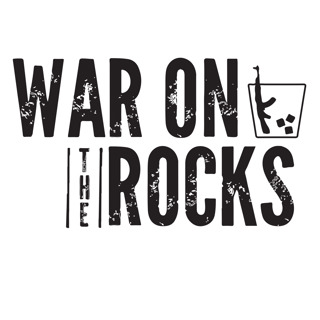
Introducing "A Most Terrible Weapon"
A Most Terrible Weapon is a podcast about the dawn of the nuclear age, hosted by Usha Sahay and produced by War on the Rocks, with support from the Carnegie Corporation of New York and the John D. And Catherine T. MacArthur Foundation. In each episode, Usha takes listeners on a journey into the early years of the Cold War, telling stories about the dilemmas nuclear weapons posed for American and Soviet leaders, and introducing a fascinating cast of characters who were all trying to prevent Armageddon in different ways. Along the way, Usha interviews scholars and other nuclear experts to help make sense of the many atomic mysteries that have yet to be solved. How do you plan for the most destructive war the world has never seen before? After the bombs were dropped on Hiroshima and Nagasaki, American leaders had to figure out how - or whether - nuclear weapons would be used in the wars of the future. In the pilot episode of A Most Terrible Weapon, Usha looks at the very first nuclear war plans, the debates inside the Truman administration about whether the bomb could ever be used again, and a terrifying new development - the arrival of the hydrogen bomb. Featuring: Dr. Lynn Eden, Dr. Marc Trachtenberg, Dr. Alex Wellerstein
30 Okt 202035min

Airmen, Sailors, and the Schoolhouse
As a part of our exploration of national security learning, we had Joan Johnson-Freese of the Naval War College and Mark Conversino of Air University on the show. Tune into this rich and wide-ranging conversation on what's right and wrong with professional military education in the Navy and Air Force.
24 Aug 202054min

Learn Like a Marine
Soon-to-be retired Maj. Gen. William Mullen drops in on the pod to talk about the making of the Marine Corps' newest doctrine, Learning, and how he hopes it will change his beloved Corps. It's all about two words: lifelong learning.
18 Aug 202030min

Gearing up for Economic Statecraft
David McCormick, the CEO of Bridgewater Associates — the world's largest hedge fund, dropped in on the pod to talk about how the United States can prepare itself to compete in a new era in which, more than ever, economic security is national security. Speaking from decades of experience at the highest levels of industry and government, McCormick lays out what America needs to do from policy to innovation to government reorganization to immigration to talent management and beyond. He also discusses the state of the global economy, the impact of COVID-19, and how America's economy could be reshaped to realize equality of opportunity. Want more? Don't miss his essay in the Texas National Security Review with co-authors Charles Luftig and James Cunningham: "Economic Might, National Security, and the Future of American Statecraft."
10 Aug 202041min

The Army Grapples with Modernization and COVID-19: A Conversation with Jim McPherson
Undersecretary of the Army James E. McPherson chats with Ryan about how the Army is coping with COVID-19 — starting with the recruitment pipeline — and the challenges of modernization. He also tells us about his military journey: Jim started as a young man in the Army then later joined the Navy, and he retired as judge advocate general of that service. In the last few years, he was called back into public service as a civilian as Army general counsel. In March he was confirmed as and promoted to undersecretary of the Army. He then served briefly as acting secretary of the Navy. Listen to this episode and learn, among other things, why he thought a request to speak to Secretary of Defense James Mattis was a prank and why his first CO in the Navy (a certain John Allen Williams) left a plant in his bed.
4 Aug 202026min

Lies Through Which We Tell the Truth
In this episode, Doyle Hodges, executive editor of the Texas National Security Review, chats wth three authors of recent fiction related to military security that explores questions of how technology, society, and the distance between people and violence affects our conception of war and security. Hodges is joined by Linda Nagata, author of The Last Good Man, a near-future science fiction novel that explores a private military company and what they are capable of doing when they use autonomous weaponry combined with surveillance; August Cole, co-author of Burn-In, a counter-terrorism story that looks at the way American society is going to be transformed by everyday automation and robotics; and Matt Gallagher, author of Empire City, which is an alternate dystopian history set in a contemporary America that won the Vietnam War.
13 Juli 202052min

Are Good Allies Hard to Find?
Well, are they? Mira Rapp-Hooper, Paul Miller, and Emma Ashford dazzle us with a wide-ranging debate on America's alliances, in part through the lens of Mira's new book -- Shields of the Republic: The Triumph and Peril of America's Alliances.
24 Juni 202046min

Scoping the Future of Education in National Security and Beyond
There's a revolution coming in education that promises to empower lifelong learners in the national security space. In the first of a series of special episodes, pick apart the technological, organizational, and -- most importantly -- cultural issues at play. What does it all boil down to? What kind of learning should count and how can you make sure it counts? To understand all this, Ryan spoke with Sae Schatz, the Director of the Advanced Distributed Learning Initiative; retired Marine Corps Brigadier General Frank Kelley, vice president of Defense Acquisitions University; and Jason Tyzsko, the vice president of the Center for Education and Workforce at the U.S. Chamber of Commerce Foundation.
14 Maj 202032min






















